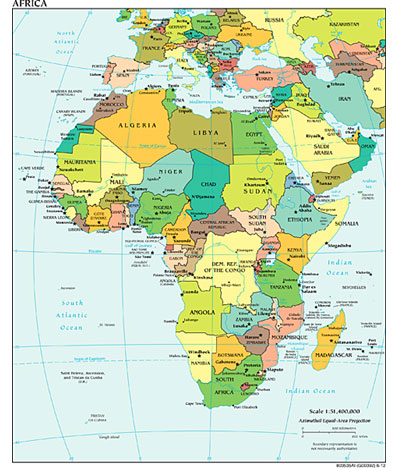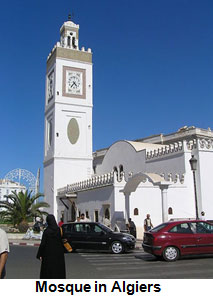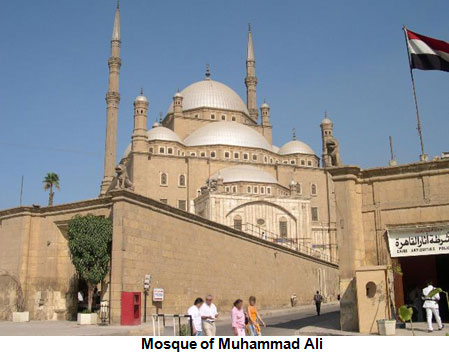

Africa is the second largest continent in the world and, with a population of nearly one billion people, the second most populated. The continent can be divided into two main regions: North Africa, the countries that lie above the Sahara Desert, and Sub-Saharan Africa, the countries that lie below.
Each country has its own diverse culture, physical features, and economy. A major cause for diversity in Africa is the European colonization of much of the continent during the 19th and 20th centuries.
![]() Click on each of the following four characteristics to learn more about the region’s religions, languages, literacy rate, and land use. (For the purposes of this lesson, you will compare the countries of Algeria, Nigeria, and South Africa.)
Click on each of the following four characteristics to learn more about the region’s religions, languages, literacy rate, and land use. (For the purposes of this lesson, you will compare the countries of Algeria, Nigeria, and South Africa.)
African culture varies from country to country. The cultures of North African countries share some cultural characteristics with countries in the Middle East. The cultures of Sub-Saharan Africa are very diverse as a result of the colonization of the various European nations that once ruled the region.

Once ruled by France, the culture of Algeria still has traces of the French culture. Some of the foods are based on ingredients found in France.
The predominant religion of Islam has the most influence on the Algerian culture. For example, the consumption of pork is forbidden in Algeria, according to Islamic rules. In this picture a woman is seen wearing a burqa, the traditional garment worn by Islamic women. Its purpose is to cover their entire bodies, excluding their eyes. Only around their husbands and families can women remove their burqas.
In Nigeria, food is a part of most rituals and traditions. Special ceremonies usually end with all participants sharing a meal. Nigerian weddings involve colorful outfits and feasts large enough to feed thousands of family members and guests. Nigerians believe that the more people who attend a person's ceremony, the more friends that person possesses.
The Nigerian wedding industry has become a booming business in Nigeria and other parts of the world where Nigerian communities exist.
![]() Click on the link below to view a slide show about Nigerian weddings in the capital city of Lagos.
Click on the link below to view a slide show about Nigerian weddings in the capital city of Lagos.
Think about this - Nigerian weddings are often described as ‘extravagant’. What did you see in the pictures that support this description? Record your responses in your notes.
Interactive popup. Assistance may be required.
The wedding dresses and headpieces of the brides are extravagant. The guests are also dressed extravagantly. Many of the cakes are extravagant as well as the wedding decorations.

Egyptian culture comes from one of the oldest civilizations in history. It is a culture that influenced other cultures in Europe, the Middle East, and other parts of Africa. Pictured here is the Mosque of Muhammad Ali built in the mid-1800s. The architecture of the mosques is similar to the mosques of the Ottoman Empire. The mosque, located in Cairo, was built in memory of Tusun Pasha, Muhammad Ali’s oldest son, who died in 1816.
Sources for images used in this section, as they appear, from top to bottom: